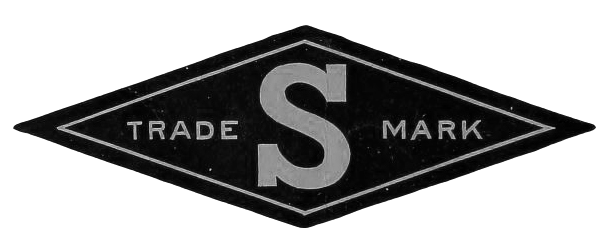
(CONTAINS SPOILERS)
On Sunday, February 14th, HBO premiered a new show from Martin Scorsese, Terence Winter, Mick Jagger, and Rich Cohen, and this drugs and music-filled adrenaline rush has promise to say the least. Starring Bobby Cannavale as record executive Richie Finestra, “Vinyl” is a throwback period drama set in the 1970s that features the look, feel, and appeal of the nonstop party and insane music era it depicts.
The two-hour premiere sets up a intriguing character piece story, does a great job at capturing the time period and presents a Scorsese’s “Boardwalk Empire” meets “The Wolf of Wall Street” like experience, but the show does miss a few beats from time to time and leaves the final verdict on this series yet to be determined.
The opening scene of “Vinyl” features Richie Finestra drunk, in rough shape and in a sketchy alley looking to score cocaine. Clearly troubled, he proceeds to do the drugs and before long, a nearby music club draws his attention. It’s difficult to explain the power this scene holds, but it’s a shocking and important scene that seems to setup the main character and give viewers a small glimpse at what they’re in for.
Following the opening scene, the show flashes back several days and follows a common TV trend of showing a small part of a future situation before flashing back and telling the events leading up to that part. From here, we find Finestra in a business meeting regarding the sale of his record company to an overseas buyer, which later jeopardizes a potential deal with Led Zeppelin.
In this episode, the audience is immediately dropped into a chaotic, fast-moving world of music and the record business. Cocaine, alcohol and/or call girls at many a meal and meeting is the norm. The company deals with everyone from known Zeppelin to up and coming unknown bands like “The Nasty Bits”, but at the end of the day, their overall book of business is lacking in big talent, and not only does this jeopardize the selling of the company, but it gives them less credibility when going after new talent.
Similar to flashing back after the opening scene, the show also uses further flashbacks to show Finestra when he was first starting out as a music and opportunity hungry bartender. He may have started out with the pure love of the music driving him, but somewhere along the way, he seems to have lost it and sold out. The resulting stress from the sale and everything going on is high, but Finestra appears to stay away from most of the drugs and party scene until we find him in the dramatic situation that fills in the blanks of the opening scene.
Between the alcohol, drugs, the intoxicating music, and an overwhelming event that takes place at the end of the episode (continuing the powerful opening scene), Finestra appears to have a sort of epiphany about selling the company, and based on a look at future episodes, the journey has just begun for this man's wild life of music, entertainment, and party favors.
With a teleplay from Terence Winter (“Boardwalk Empire”, “The Wolf of Wall Street”) and George Mastras (“Breaking Bad"), a story by Winter, Mick Jagger (The Rolling Stones), Rich Cohen (“Magic City”, “The Long Play”), and Scorsese (also directed this episode), whose massive accomplishments are clear to most, “Vinyl” definitely has some heavy hitters and smart minds behind it and could quickly become a popular hit.
Aside from Cannavale, the show features many other actors, such as Olivia Wilde, Ray Romano, Ato Essandoh, Juno Temple, P.J. Byrne, Max Casella, J.C. MacKenzie, Jack Quaid, Paul Ben-Victor and more. Much of the dialogue and narrations are smart and comical, the story and character examination is interesting enough, the soundtrack is electric and appealing, and similar to “The Wolf of Wall Street”, there are a variety of cut scenes that often show exaggerated or overly humorous versions of what’s being talked about or narrated.
One of my favorite aspects of this show is the look and feel of the time period. From the lifestyle, to the cars, buildings, offices, hairstyles, fashion, music, and even the color or camera filter, everything is extremely nostalgic looking and reminiscent of the 70s. Long hair, flashy clothing, alcohol and drugs at the office, awake at all hours and more was the way it was for people like Richie Finestra. It’s the kind of lifestyle that’s amusing to watch from the sidelines, but not one you would ever want to take part in.
In regards to the timeline, the show doesn’t do the best job at letting you know whether a given scene is the past, present, etc. While you can quickly catch on as to where a scene lands in the time frame, there’s no specific dates or many clear indicators, aside from maybe Finestra’s hair. One minute it will be Finestra in the present, and then in the next, he’s doing something in the past.
Much like “Boardwalk Empire” from the same creators, “Vinyl” has more than a handful of overly decent, intense, exciting, and amusing scenes throughout an episode, and clearly more than honors the time period, but it also has a great deal of fluff and in between, sometimes dull or less than average filler parts. Sometimes a show just needs time to develop, and there’s definitely something to this show, but the jury is still out on how strong it actually is. Either way, it’s worth continuing to watch.
You can catch “Vinyl” on Sunday evenings on HBO, and if you missed the first episode, you can watch it on HBO GO, HBO NOW, On Demand and a variety of other ways. The first season is said to consist of ten episodes.
